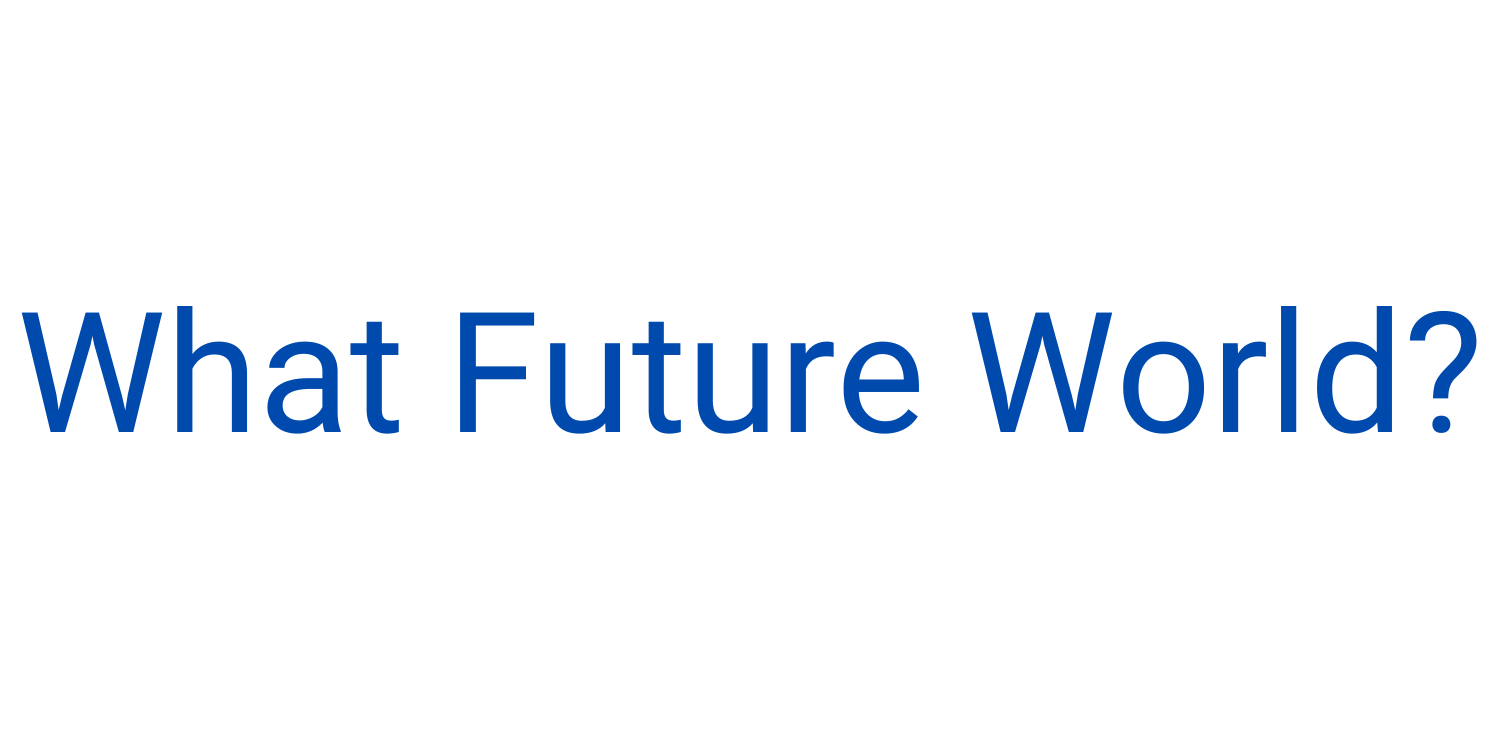What is 'What Future World?'?

What Future World? is a project to create a better future by developing a detailed vision for an ideal future world and the strategy for achieving it.
Every Monday I'll share an original essay contributing either to the future vision or the execution strategy. How they contribute will vary. I plan to translate the leading ideas in philosophy, politics, technology, design, and a number of other fields into both an accessible form and a format congruent with our desired outcome. Equally, I plan to introduce novel ideas in any of these fields, in part to push our collective thinking but also in a hope that it may prompt deeper research. To achieve as broad a reach as possible, each piece of content will be produced in video (YouTube), audio (Podcast), and text (Blog).
In 2024 I hope to complement these essays with an interview series. I hope to speak with leading thinkers whose work can inform our goal - they imagine an ideal future state and may also have theorised a strategy to achieve it. These could be authors, other thought-leaders, investors, start-up founders, politicians, academics, and researchers. There will be an intentionally broad set of guests, who may possess wildly differing views on the future. In line with our principles, my role as the interviewer will be to foster their vision but also to critically challenge them in areas where their vision encroaches on that of another.
Purpose
It is important to state explicitly that WFW? has a clearly defined aim - we have a specific purpose of developing a vision for the future and strategy for creating it, and the research agenda to inform both. It is equally more focused than a traditional blog and more engaging than a wiki. This is not an academic exercise, it is the most effective approach to executing a clearly defined mission. For more, see 'Why 'What Future World?'?.
In time, I will enable community participation beyond the comment section and feedback form to better execute our mission. This will feel different to an online forum. I hope it will feel more like a distributed organization - an organized collective of individuals working toward a common goal, each contributing what they are able and best placed to do so. Read more on the vision for WFW? below.
Approach
We'll draw on philosophy (primarily moral philosophy and what it means to live well) and fiction (primarily science and speculative fiction) to imagine desirable destinations, knowing they are not the end point but rather give the optimal direction for our current knowledge. As we refine and align on these utopian destinations, we correct our course, and as technological developments continue to accelerate on this journey, we gain confidence that we will narrow-in on a thriving society.
Of course this metaphor falls flat without the ability to steer our ship. What good is it to know that we want to travel on a certain heading, but know that we are currently heading away from it, and possess little to no way of turning the ship around? That's why this community will also be pragmatic. It will draw inspiration and energy from the desired destination to develop a strategy for how we will get there. Here the disciplines of AI governance, political economy, and change management take precedent. This is not an academic exercise. Without real change this utopian dreaming could even do more harm than good and be seen as academic and pointless or ivory-towered and exclusive.
A note on the name
We define 'world' in its most general sense - the whole of reality - rather than as an equivalent to 'planet earth'. For this project to be successful, we must be unconstrained and welcome any idea, even if the vast majority will not make it to our future vision or strategy. I want to be clear that the future of 'reality' may not be bound - or even involve - planet earth.
Despite learning from the past and driving to action in the present, we are primarily concerned with our future reality. There are many brilliant minds focused on better understanding our present world - this project is born from the belief that too few are focused on our future reality.
The 'what?' framing intends to instill a sense of hope from the very start - that this is a question that we can, and fully intend to, answer. Why not 'which'? Again, this comes down to our principle of being unconstrained. 'Which?' would suggest a finite set of future worlds we may choose between. In designing and defining an ideal future we are in one sense selecting from an infinite set of possible futures, meaning the 'what?' framing is grammatically correct. What Future World?
Vision
In time, I hope to enable content creation and sharing for all members of the community, and transform WFW? from a one-way blog with a thriving comments section into a truly distributed organisation and community of ideas. We will simply not achieve our mission as fast if I am the only one truly free to contribute novel ideas.
Please share your thoughts if you have any feedback on What Future World? or the vision for the community.

Member discussion